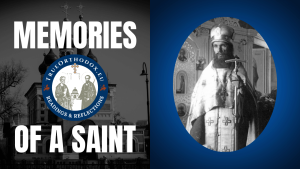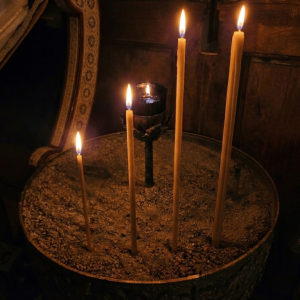The First Ecumenical Council and the Date of Pascha

In 2025, many Christians will mark the 1700th anniversary of the First Ecumenical Council, held in Nicaea in 325 AD. It is indeed right to celebrate this monumental event, which upheld the true faith and established foundational principles for Church life. However, it is deeply ironic—and troubling—that some who wish to commemorate this anniversary are simultaneously advocating for a change to one of the Council’s most significant decisions: the method for determining the date of Pascha (Easter).
By seeking to alter what the Fathers of Nicaea so carefully established, they are not honoring the Council but opposing it. Their actions undermine the unity and authority that the Council sought to preserve, striking at the heart of the Apostolic Tradition. This contradiction calls us to reflect: can we truly celebrate the First Ecumenical Council while rejecting one of its clearest decrees?
The First Ecumenical Council, held in Nicaea in 325 AD, was not merely about theological disputes; it was also about preserving the unity and integrity of the Church. Central to this unity was the proper celebration of Pascha, the Feast of Feasts. The Council’s decision was not arbitrary but deeply rooted in Apostolic Tradition and the typology of the Old and New Testaments. Let us revisit what the Council decided about Pascha, why these decisions remain unchangeable, and the consequences for those who deviate from them:
The First Ecumenical Council and the Date of Pascha
The First Ecumenical Council, convened in Nicaea in 325 AD, was pivotal in resolving disputes regarding the proper calculation of Pascha (Easter). Prior to the Council, disagreements existed between local Churches, especially between those following the Jewish calendar and those following independent calculations. The Council established the following principles:
1. The Formula for Calculating Pascha
Pascha must be celebrated: On the first Sunday after the first full moon following the vernal equinox.
Always after the Jewish Passover, to maintain the typology of Christ fulfilling the Law (as the Lamb of God).
This ensures that Pascha reflects the Resurrection of Christ as the New Covenant and avoids association with the Old Covenant observances.
2. Why the Date Cannot Be Changed
The decision was rooted in Apostolic tradition, as the celebration of Pascha was seen as inseparable from the theological truths of the Resurrection.
The Council sought unity in this observance among all Christian Churches. Changing the method would disrupt this unity and alter the connection to both Scripture and Tradition.
The immutability is tied to the belief that the Church must adhere to what has been handed down, without innovation, especially regarding the most significant feast in the liturgical calendar.
3. Restrictions Set by the Council
The Council prohibited:The celebration of Pascha on the same day as the Jewish Passover.
Independent or regional calculations that deviated from the established formula.
Local Churches were required to follow the decision of the Church of Alexandria in determining the date annually, as Alexandria had expertise in astronomical calculations.
4. Punishments for Deviations
Those who willfully deviated from the Council’s ruling were considered to be:In schism from the Church.
Subject to ecclesiastical penalties, including excommunication, as deviation was seen as a rejection of Church unity and Tradition.
This strictness reflects the seriousness with which the Church regarded adherence to conciliar decisions, especially those concerning major feasts.
The Council of Nicaea ensured that the celebration of Pascha would always be a sign of unity in faith and practice for the entire Church. To alter its calculation would undermine both the theological and historical foundation established by the Apostles and the Church Fathers.
A Call to Faithfulness
As we approach the 1700th anniversary of the First Ecumenical Council, let us remember that fidelity to the Church’s Tradition is not a matter of convenience but of faithfulness to Christ and His Apostles. Those who seek to change the date of Pascha, whether for the sake of modern ecumenism or other reasons, are not honoring the legacy of Nicaea—they are opposing it.
If we truly wish to commemorate the First Ecumenical Council, we must do so not with empty words or modern innovations, but by remaining steadfast in the teachings and traditions it established. For in doing so, we truly honor the faith that was handed down to us, preserving the unity of the Church and the integrity of her liturgical life.





